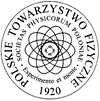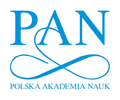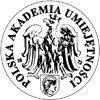General Information
The Cracow School of Theoretical Physics is organized yearly since 1961 in Zakopane, winter and summer resort town located in the High Tatra Mountains approximately 100 km south of a historical city of Krakow, a former capital of Poland. Typically the program consists of 10-15 plenary lectures, each two-three hours long and shorter one-hour contributions by invited speakers, and a number of 20 min. talks by young scientists. Lecture sessions are arranged in the mornings and in the evenings. Afternoons are left free for discussions. One day during the School is free and one can use this time for hiking in the High Tatra Mountains or for hanging around in the town of Zakopane. Participants are expected to be at the level of last year MSc, PhD and/or young post-docs working in the fields covered by the School. The School typically accommodates up to 70 participants.
School 2026
In recent decades we have witnessed an unprecedent progress in unraveling
the properties of strongly interacting hadronic matter at large temperatures.
Experiments performed at RHIC at Brookhaven National Laboratory and at CERN
provided a wealth of data that led to the discovery of a new state of matter,
so called, quark-gluon plasma. The newly planned electron-ion collider (EIC)
to be built at Brookhaven National Laboratory will further develop an experimental
program to study the internal structure of nuclei, as well as the general properties
of strongly interacting matter.
On the other hand, the properties of matter at extreme densities are at the moment
rather poorly known. The main experimental information is rather new and comes
mostly from the nuclear star mergers that have been observed through the emission
of gravitational waves. We expect new ground-based experiments studying high density
nuclear matter to be completed in the near future. The most promising now is the CBM
experiment at the FAIR facility in Darmstadt. On the other hand, space laboratories
like NICER and planned to start operation in 2030’s Athena and LISA, and facilities
measuring gravitational waves on ground, will provide new experimental information
on matter in neutron stars.
The aim of the School is to provide an overview of the present experimental data from RHIC,
LHC and GSI experiments, to present current theoretical understanding of the physical
phenomena relevant to the physics of nuclear matter at extreme conditions,
as well as the theoretical expectations from the future experiments.
We also intend to present 2-4 lectures on challenges in particle physics in general
going beyond the specific topics of the School. Here we have in mind cosmology,
physics beyond standard model, precision physics in weak interactions, pentaquarks and
tetraquarks.
Unlike most of the previous Schools, the School in 2026 will take place in Kraków,
not in Zakopane. It will have a topical character and each speaker will have
one 45 min. lecture. As part of the School, on Wednesday, June 17, a commemorative
session will be held to celebrate the 90th birthday of Andrzej Białas.









